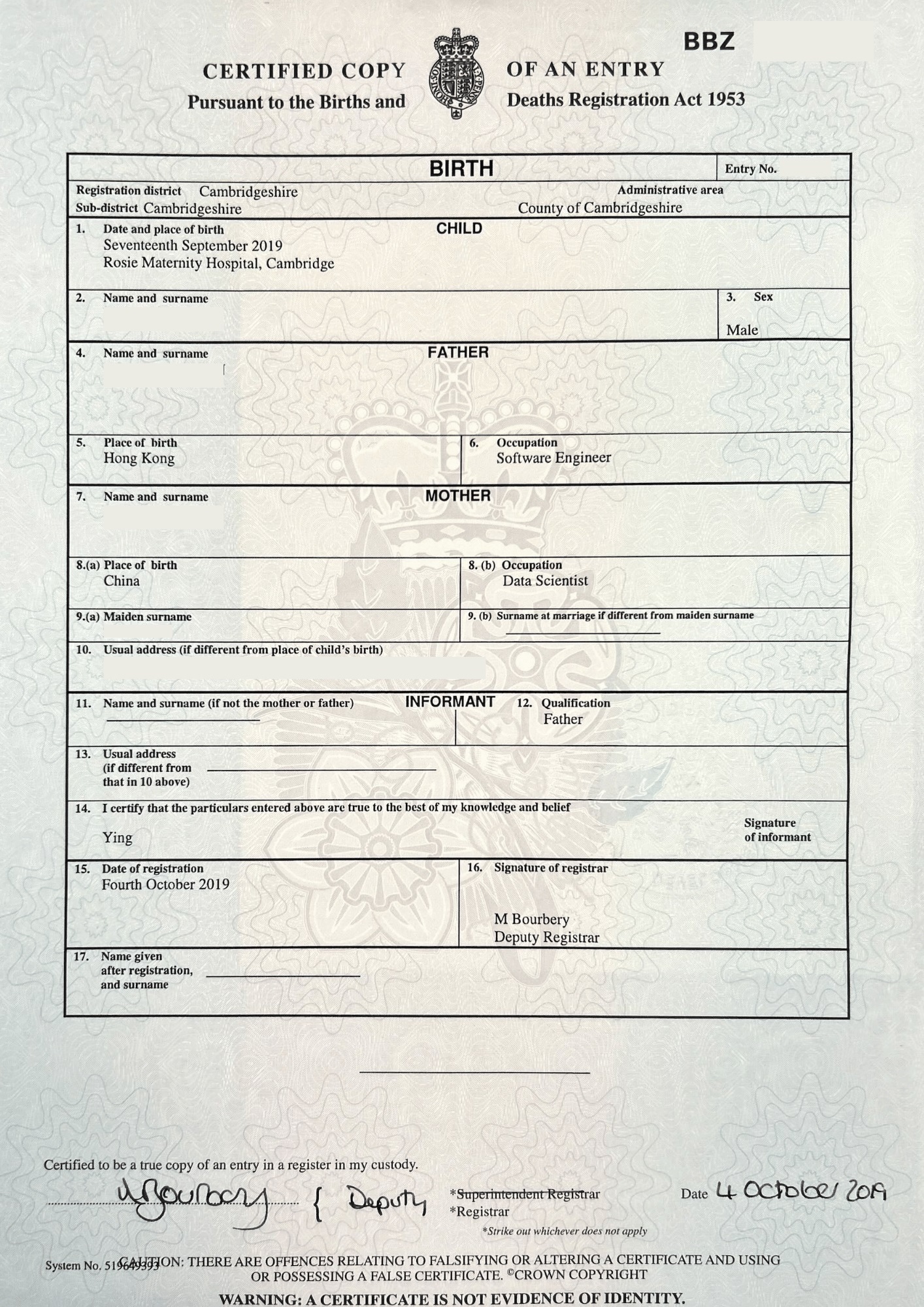Translation of Birth Certificate from English to Russian
Are you looking for professional English to Russian translation of birth certificate? Do you need to translate your birth certificate for your personal or corporate needs? Is it just one-page documents that you have to translate, or you have multiple documents for legal translation into Russian? What is the purpose of your request for translation of your Birth Certificate from English to Russian? Do you need translation of your legal documents for casual visiting Russia, or for different purpose? Do you need it for legal proceedings, corporate relations, purchase of goods or real estate, partnership, working in the territory of Russian Federation, for marriage, adoption, or for residing in Russia.
Russian certified translation of documents and certificates
English to Russian translation of Birth Certificates
How to translate a certificate from English to Russian
How to get Russian certified translation
English to Russian official translation
Birth certificates are foundational documents that provide essential information about an individual's birth, including their identity, parents, place of birth, and date of birth. While these documents hold immense importance in one's home country, they are often required to be translated when individuals move to another country, marry, apply for visas, or conduct various legal and administrative processes. This blog post aims to demystify the translation of birth certificates from English to Russian, providing a comprehensive guide on how to do it, the reasons behind this need, and the certification process involved.
Russian certified translation of documents and certificates
English to Russian translation of Birth Certificates
How to translate a certificate from English to Russian
How to get Russian certified translation
English to Russian official translation
Birth certificates are foundational documents that provide essential information about an individual's birth, including their identity, parents, place of birth, and date of birth. While these documents hold immense importance in one's home country, they are often required to be translated when individuals move to another country, marry, apply for visas, or conduct various legal and administrative processes. This blog post aims to demystify the translation of birth certificates from English to Russian, providing a comprehensive guide on how to do it, the reasons behind this need, and the certification process involved.

I. Understanding the Importance of Translating Birth Certificates to Russian
Birth certificates are official documents issued by government authorities to record and verify the birth of an individual. They serve several vital purposes:
- Proof of Identity: Birth certificates are the primary means of establishing one's identity. They contain essential personal details, such as the individual's full name, date of birth, and place of birth.
- Citizenship and Nationality: Birth certificates are often required to determine an individual's citizenship or nationality. They can be used as supporting documentation when applying for passports or visas.
- Legal and Administrative Procedures: Birth certificates are indispensable for a wide range of legal and administrative processes, such as marriage, adoption, and estate planning.
- Educational and Employment Purposes: When enrolling in educational institutions or seeking employment, individuals may be required to present their birth certificates as part of the application process.

II. Reasons for Translation of a Birth Certificate from English to Russian
There are various scenarios in which individuals may require the translation of their birth certificates from English to Russian:
- Immigration: When applying for visas, residency permits, or citizenship in Russia, individuals who are not native Russian speakers may need to provide a Russian translation of their birth certificate.
- Marriage: International couples often need to translate their birth certificates as part of the marriage registration process in Russia. This is essential to ensure that the marriage is legally recognized.
- Educational Pursuits: Students applying to Russian universities or educational institutions may be asked to submit a translated copy of their birth certificate to meet enrollment requirements.
- Employment Opportunities: When seeking employment in Russia or working for a Russian company, you may be required to provide translated documentation, including your birth certificate.
- Legal Procedures: Birth certificates may be required for legal proceedings, such as inheritance and property transactions, where documentation must be presented in both English and Russian.

III. How to Translate a Birth Certificate from English to Russian
Translating a birth certificate from English to Russian is a multi-step process that ensures the document is accurate, culturally relevant, and legally acceptable. Here's a step-by-step guide on how to do it:
Select a Qualified Translator:
Choose a certified translator who is proficient in both English and Russian and has experience with legal and official document translation. Look for translators who are accredited by professional translation organizations.
Request a Copy of the Birth Certificate:
Obtain a clear and legible copy of the original birth certificate. Ensure that all text, including names, dates, and signatures, is visible.
Transcribe the Document:
The translator will transcribe the entire document, including the header and all relevant information, into Russian. It's crucial to maintain the same formatting and structure as the original certificate.
Translate the Text:
The translator will provide a line-by-line translation from English to Russian. Special attention is given to preserving the exact meaning and nuances.
Review and Proofread:
The translated document is thoroughly reviewed and proofread to ensure accuracy, clarity, and proper formatting. Any inconsistencies or errors are corrected during this stage.
Certification:
To be legally recognized, the translated birth certificate must be certified. This is typically done in one of two ways:
Document Presentation:
The final translated and certified document can be provided in both paper and electronic formats. The paper copy can be notarized or legalized for official use, while the electronic copy can be used for reference.
Filing and Submission:
Present the translated and certified birth certificate to the relevant authorities, agencies, or organizations where it is required.
Select a Qualified Translator:
Choose a certified translator who is proficient in both English and Russian and has experience with legal and official document translation. Look for translators who are accredited by professional translation organizations.
Request a Copy of the Birth Certificate:
Obtain a clear and legible copy of the original birth certificate. Ensure that all text, including names, dates, and signatures, is visible.
Transcribe the Document:
The translator will transcribe the entire document, including the header and all relevant information, into Russian. It's crucial to maintain the same formatting and structure as the original certificate.
Translate the Text:
The translator will provide a line-by-line translation from English to Russian. Special attention is given to preserving the exact meaning and nuances.
Review and Proofread:
The translated document is thoroughly reviewed and proofread to ensure accuracy, clarity, and proper formatting. Any inconsistencies or errors are corrected during this stage.
Certification:
To be legally recognized, the translated birth certificate must be certified. This is typically done in one of two ways:
- Notarization: The translator can have the document notarized, which involves signing an affidavit stating that the translation is accurate and complete.
- Apostille or Legalization: Depending on the requirements of the receiving country, an apostille or legalization may be necessary. This involves obtaining a certification from the government or relevant authority.
Document Presentation:
The final translated and certified document can be provided in both paper and electronic formats. The paper copy can be notarized or legalized for official use, while the electronic copy can be used for reference.
Filing and Submission:
Present the translated and certified birth certificate to the relevant authorities, agencies, or organizations where it is required.

IV. Certification Process for Translated Birth Certificates
The certification process for translated birth certificates is essential to ensure their authenticity and legal recognition. The primary methods of certification include notarization and apostille/legalization:
Notarization:
In many cases, a certified translator will notarize the translated birth certificate. Notarization involves the translator signing an affidavit in the presence of a notary public, affirming that the translation is accurate and complete. This notarized translation is then considered an official and legally recognized document.
Apostille or Legalization:
Depending on the destination country's requirements, an apostille or legalization may be necessary. An apostille is a certification that is issued by the government to validate the authenticity of the document, making it internationally recognized. Legalization is a similar process used when an apostille is not accepted by the receiving country.
To obtain an apostille or legalization, you must contact the relevant government department or agency, which will verify the notarized document's authenticity. Once this process is completed, the translated birth certificate becomes legally recognized for international use.
Notarization:
In many cases, a certified translator will notarize the translated birth certificate. Notarization involves the translator signing an affidavit in the presence of a notary public, affirming that the translation is accurate and complete. This notarized translation is then considered an official and legally recognized document.
Apostille or Legalization:
Depending on the destination country's requirements, an apostille or legalization may be necessary. An apostille is a certification that is issued by the government to validate the authenticity of the document, making it internationally recognized. Legalization is a similar process used when an apostille is not accepted by the receiving country.
To obtain an apostille or legalization, you must contact the relevant government department or agency, which will verify the notarized document's authenticity. Once this process is completed, the translated birth certificate becomes legally recognized for international use.
V. How applicable is Russian translation of Birth Certificates
The translation of a birth certificate from English to Russian is a meticulous process that serves various practical purposes, from immigration and marriage to education and legal procedures. This translation process must be handled by a qualified and certified translator to ensure accuracy and adherence to legal and cultural norms.
Certification is a critical step in the translation process, providing the necessary legal recognition for the translated document. Whether through notarization, apostille, or legalization, the certification process is essential to ensure the translated birth certificate is accepted and valid in its intended context.
By following the steps outlined in this guide, individuals can navigate the translation of their birth certificates with confidence, ensuring that their important life documents remain valid and relevant in the context of a globalized world.
Certification is a critical step in the translation process, providing the necessary legal recognition for the translated document. Whether through notarization, apostille, or legalization, the certification process is essential to ensure the translated birth certificate is accepted and valid in its intended context.
By following the steps outlined in this guide, individuals can navigate the translation of their birth certificates with confidence, ensuring that their important life documents remain valid and relevant in the context of a globalized world.
Document translation from English to Russian
Russian translation for Oil and Gas industry
Russian translation of user manual
Russian medical translation
Russian business translation
Russian financial translation
Russian technical translation
Russian engineering translation
Russian translation services in the UK
Russian translation for Oil and Gas industry
Russian translation of user manual
Russian medical translation
Russian business translation
Russian financial translation
Russian technical translation
Russian engineering translation
Russian translation services in the UK













